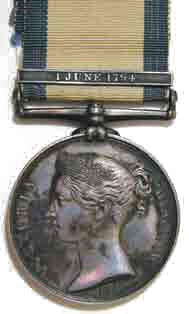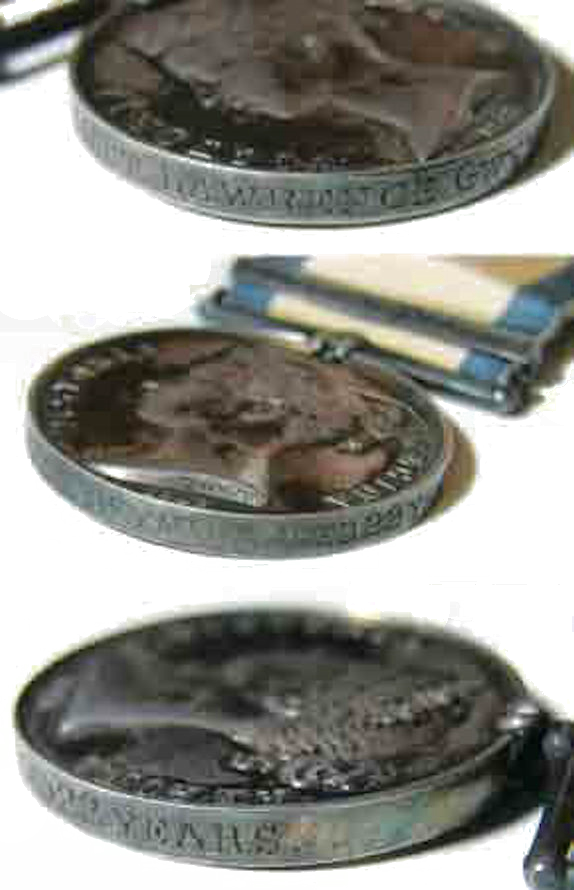‘Schoolies’: Teachers of the Royal Navy and Royal
Marines 1700-1914
Eventually the seamen’s schoolmaster would in effect become an assistant to the naval instructor, and the former was elevated to a chief petty officer in 1853 (Admiralty Circular No 121, 14 June 1853). But major reforms of this rating were slow in coming, and it was not until the late 1860s that entrants were placed on a professional footing. While all boys were required to be instructed by the seamen’s schoolmaster, education for petty officers, sailors and marines was strictly voluntary. It was up to ships’ commanders to allow men and boys to attend school, ‘consistently with the proper discharge of the duties of the ship’.
Medallic anomalies and curiosities The inscription ‘Naval Instructor ’ appears on the retrospective NGS. However, as far as is known, if a recipient was a chaplain and naval instructor, only ‘Chaplain ’ graces the medal’s edge (such as in the cases of the Syria awards to the Rev Jenkins and the Rev Wilson). Since the old title of schoolmaster coexisted with the new warrant ranks, this evidently caused confusion when naming the NGS. The location of what appears to be a partially remaining impressed full stop on the 1 June 1794 award to Gwynne implies ‘SCHOOLMASTER’ may have featured on the edge before renaming. In the cases of Schoolmasters William Hamilton (Algiers) and Edward Mallard (Navarino), the title is absent from the naming. Conversely, Naval Instructor Joseph L. Hodgson (Syria) does not have his rank on the medal, but Edgar B. Barnes’s Syria award features it spelled out in full. Why? It is probable that the schoolie’s attainment of full warrant status in 1836, then becoming ‘naval instructor and schoolmaster’, and then ‘naval instructor’/ ‘chaplain and naval instructor’ in 1842, caused a bit of confusion when the medal was issued at the end of the decade. The retention of some men at the old schoolmaster rate only added to the problem. After all, during the Syrian operations in 1840, Hodgson and Barnes were both officially titled ‘naval instructor and schoolmaster’, but when Barnes’s medal was named up, the Mint worker must have referenced a list that simply stated |

